Return to the search form Return to your search results
SIT Tanzania Wildlife Conservation and Political Ecology
Fast Facts
Sessions Offered:
Fall, Spring
Location:
Arusha, Tanzania
Credit:
Transfer
Program Features
Affiliated Program
Research
Internship
Eligibility:
- 2.5 GPA
- Good academic and disciplinary standing
- Previous college-level coursework and/or other significant preparation in environmental studies, ecology, biology, sociology, anthropology, international relations, or related fields
Application Due:
Spring 9/24
Fall 2/24
We're not accepting applications for Fall 2026. Please contact your study abroad advisor to discuss study abroad program options.
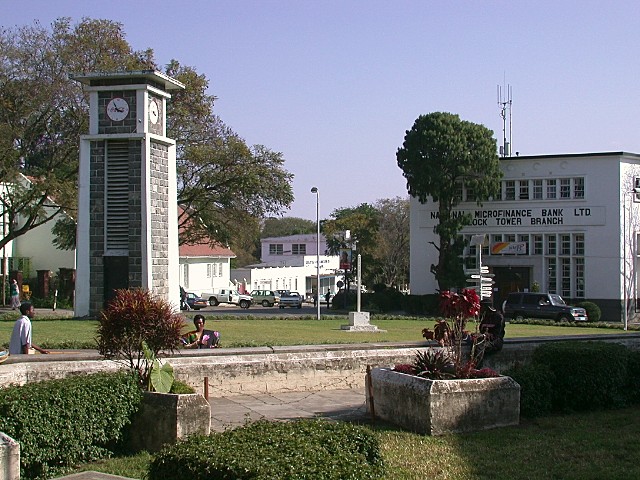
The SIT Experience
- Rigorous academic programs through a field-based, experiential approach
- Undergraduate research through an Independent Study Project
- Cultural immersion through fieldwork, language classes, and urban and rural homestays with local families
- A small group of students in each program, supported by SIT faculty and staff, homestay families, in-country experts, and community members
- Access to SIT's extensive local resources and networks
- A commitment to reciprocity as the foundation of our educational philosophy
Academic Program
Explore the balance between ecological concerns and socioeconomic objectives in the vast wilderness expanses of northern Tanzania.
The program challenges students to reframe notions of sustainability in relation to local population needs, perspectives, and values. Through rigorous thematic coursework and hands-on experiential learning, students consider how natural resource management will benefit future generations in light of the current factors driving environmental degradation. Students explore the country’s diverse human and natural environments through seminars and field visits to nature reserves and conservation areas.
Major topics of study include:
- Wildlife ecology
- Conservation, environmental issues, and national park management
- Life and culture, history, politics/economics, and current events
- Relationships between socioeconomic objectives, ecological parameters, and cultural transitions from multi scale/factor perspectives in various Tanzanian landscapes
For more information, see SIT's webpage.
Program Structure
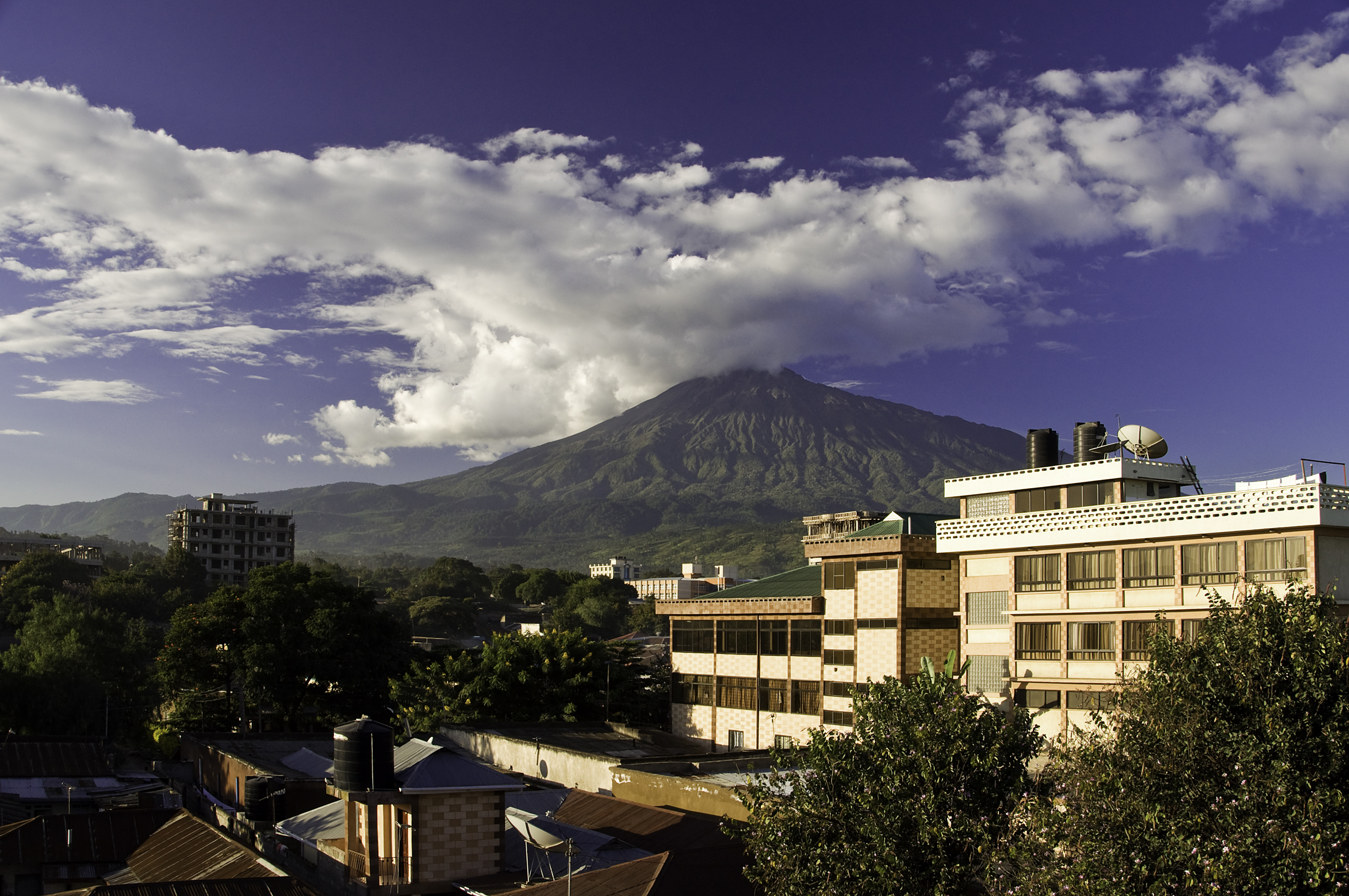
Interdisciplinary Seminars
Thematic seminars merge student experience with academic theory to examine critical issues from multiple perspectives. Students learn from SIT faculty as well as guest lecturers from local universities, research institutes, nongovernmental organizations (NGOs), and community and professional associations. Field-based activities and assignments complement readings, discussions, and research papers, allowing students to engage in a variety of study methods.
Intensive Language Study
Programs typically offer language study at the intermediate and advanced levels and/or beginning instruction in a less commonly taught language spoken by the local community. Language courses incorporate formal classroom instruction, discussion, and field exercises designed to enhance student engagement while improving oral and written competence. Select programs are taught entirely or partly in the target language.
Research Methods and Ethics
Students learn appropriate methodologies that prepare them to undertake fieldwork on topics connected to the program’s theme and specific cultural context. Students develop research skills and approaches including cross-cultural adaptation and skill building; project selection and refinement; contact and resource cultivation; observation and interviewing skills; gathering, organizing, and presenting findings; and maintaining a field journal. Students also examine the ethics and impact of their research on local communities and are required to follow the World Learning/SIT Human Subjects Review Policy, which serves as an approval process and guide for ethical field study practices.
Independent Study Project (ISP)
Typically conducted during the last month of the semester, the ISP allows students to pursue original field-based research on a topic of their choice within the program’s thematic parameters. The academic director advises each student on developing a project plan. Students also identify an ISP advisor who works with the student on the design, implementation, and evaluation of the student’s research project. Final projects generally include a 20- to 40-page paper and presentation to peers, academic staff, and interested members of the host community.
Cultural Activities
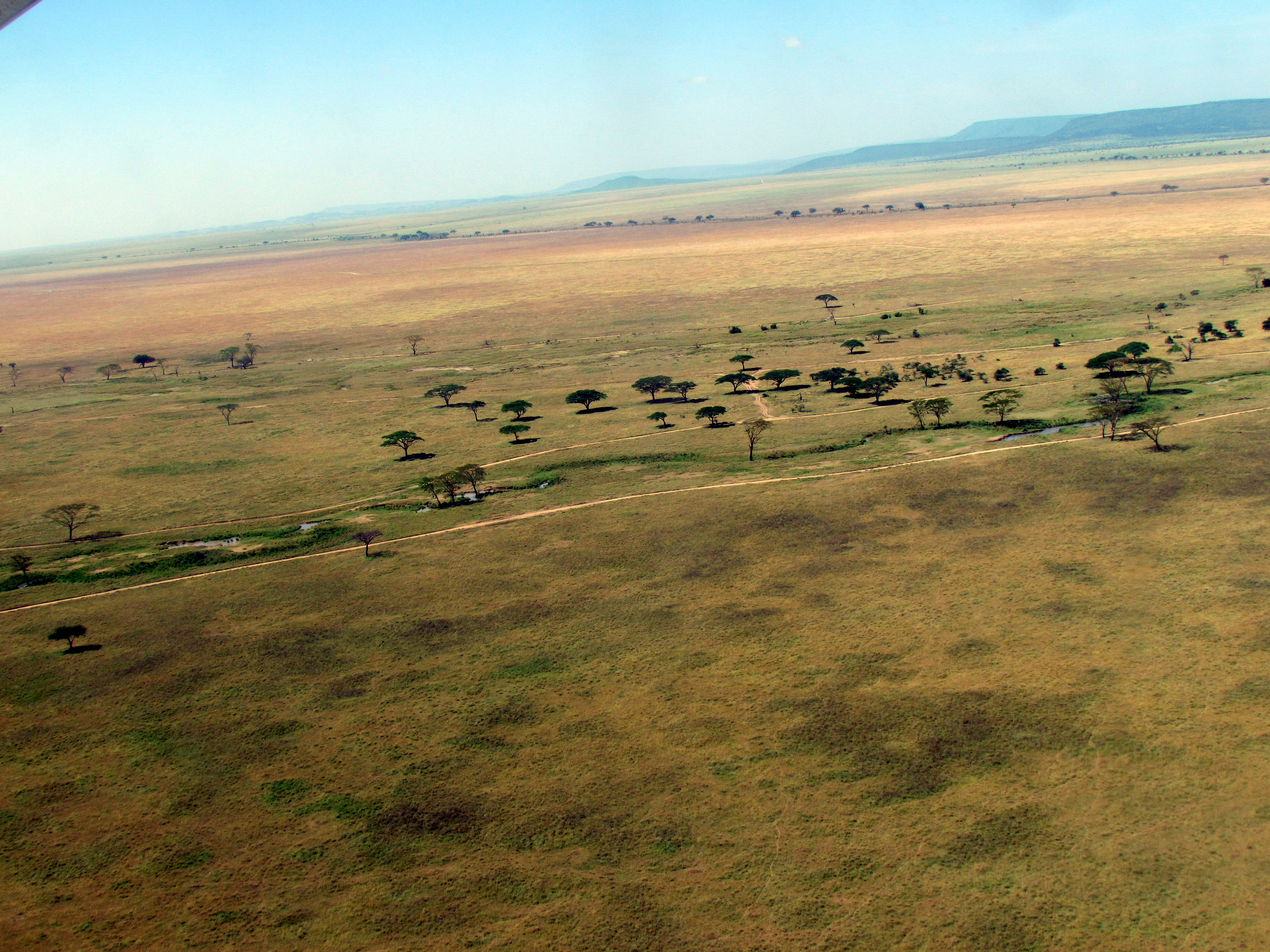
The program includes excursions to nature reserves and conservation areas such as Serengeti National Park, Ngorongoro Crater Conservation Area, and Tarangire National Park.
All excursions are designed with the objective of changing scales and locations, providing a variety of lenses and perspectives for students to explore essential questions. At the largest scale, the program travels through the 25,000 square kilometer Serengeti-Ngorongoro ecosystem. This final, 14-day safari provides a refocusing of the content of the program in preparation for the Independent Study Project.
The mid-scale experience takes place in the Tarangire-Manyara ecosystem, where students explore a fragmented ecosystem and the western conservation model of national parks. The smallest scale safari is to a tropical forest, where the group explores the micro-temporal and micro-spatial aspects that are replicated on larger scales — an exercise in fractal geometry. These different locations also provide insight into the ways that different ethnic groups interact in their landscapes.
TARANGIRE-MANYARA ECOSYSTEM: You will explore the fragmented ecosystem of two national parks, Lake Manyara and Tarangire. Tarangire National Park is famous for its many African elephants per square kilometer and baobab trees. Depending on the season, the 1,100-square-mile park is home to diverse wildlife species including threatened and endangered species such as ebony trees, African wild dogs, gerenuk, elephants, and more. Lake Manyara National Park is 240 square miles of arid land including underground water, forests, and a 163-square-mile lake that is nearly nonexistent in the dry season. Flamingos, hippopotami, leopards, blue monkeys, and gazelles are easily spotted here. The Tarangire-Manyara ecosystem gives an opportunity to examine the western conservation model of national parks and get insight into the ways various ethnic groups interact in their landscapes.
SERENGETI-NGORONGORO ECOSYSTEM: You will go on a 7-day safari through the 25,000-square-kilometer Serengeti-Ngorongoro ecosystem. Serengeti National Park is home to a large and diverse population of wildlife including the “big five”: lions, leopards, elephants, black rhinoceros, and African buffalo. You will also visit the Ngorongoro volcanic Crater, Enashiva Nature Reserve, and the Loliondo Game Controlled Area, where tourism has had a profound impact on the local Maasai. The Serengeti-Ngorongoro ecosystem also includes Oldupai Gorge, the most famous archaeological site in east Africa.
NORTHEASTERN TANZANIA: Visit the privately owned, 11,000-acre Ndarakwai Ranch, which practices sustainable ecotourism, preserving seasonal elephant routes and a variety of habitats for more than 70 mammal species and 300 bird species. Near the Usambara Mountains, you will see the Mazumbai Forest Reserve, a pristine tropical forest.
Program Dates
Spring Semester: Late January - Early May
Fall Semester: Early September - Mid-December
For more information
Steps to Studying Abroad
- Before initiating an application with SIT, students must complete a Discover Study Abroad session at the University of Iowa.
- After completing the Discover Abroad session, students will receive an email with their study abroad advisor assignment.
- Once assigned, students must meet with their study abroad advisor to receive program application instructions.
Study Abroad
1111 University Capitol Centre
Iowa City, IA 52242
Phone: 319-335-0353
Email: study-abroad@uiowa.edu
Arusha
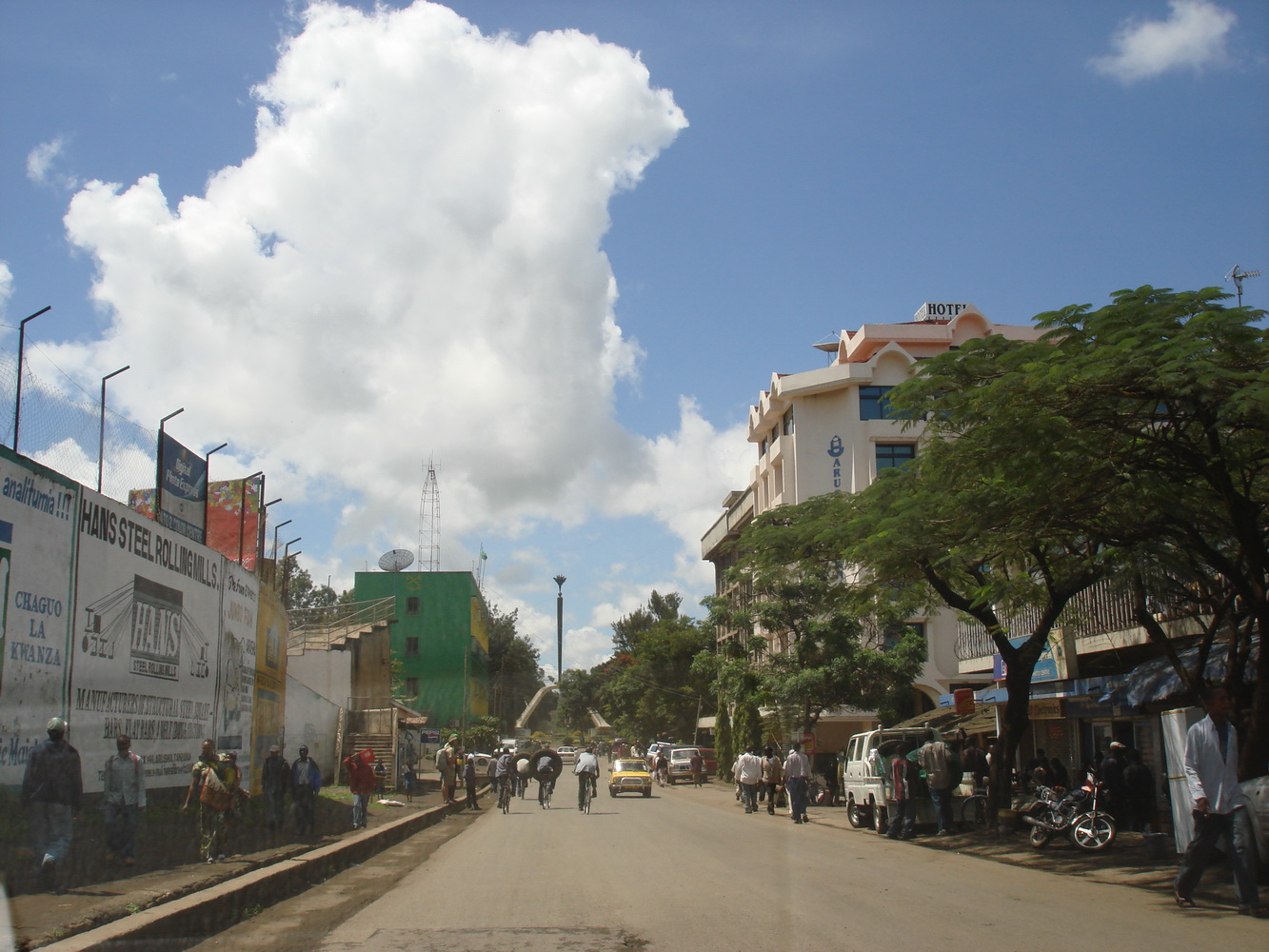
Tanzania is a beautiful and varied country in East Africa spanning the Serengeti Plains; Mount Kilimanjaro, Africa’s highest peak; and the Zanzibar archipelago. The Serengeti ecosystem (approximately 25,000 square km) includes Oldupai Gorge, a formation of the Great Rift Valley system and the site of renowned early hominid fossil discoveries by Mary and Louis Leakey.
The Serengeti also contains the immense Ngorongoro Crater, a UNESCO world heritage site and the world’s largest intact volcanic caldera. The Serengeti is home to a large and diverse population of wildlife. More than 120 ethnic groups live in Tanzania, comprising tremendous cultural and linguistic differences, unified by a single national language — Kiswahili.
Tanzania
Tanzania, East African country situated just south of the Equator. Tanzania was formed as a sovereign state in 1964 through the union of the therefore separate states of Tanganyika and Zanzibar. Mainland Tanganyika covers more than 99 percent of the combined territories’ total area. Mafia Island is administered from the mainland, while Zanzibar and Pemba islands have a separate government administration. Dodoma, since 1974 the designated official capital of Tanzania, is centrally located on the mainland. Dar es Salaam is the largest city and port in the country.
According to most reputable surveys, Tanzania’s population includes more than 120 different indigenous African peoples, most of whom are today clustered into larger groupings. Because of the effects of rural-to-urban migration, modernization, and politicization, some of the smallest ethnic groups are gradually disappearing.
US Department of State Country Information
The US Department of State provides safety and security information for every country of the world to help you assess for yourself the risks of travel. Each country information page contains a Travel Advisory, Alerts, and other important details specific to that country that could affect you.
Pay close attention to the entry and exit requirements, local laws and customs, health conditions, and other details to help decide whether traveling to any given country is right for you. Non-US citizen travelers may also wish to seek guidance from the embassy of their country of citizenship. The UI International Travel Policy for Students addresses restrictions on student travel to high-risk locations and engagement in high-risk activities abroad.
Living Arrangements
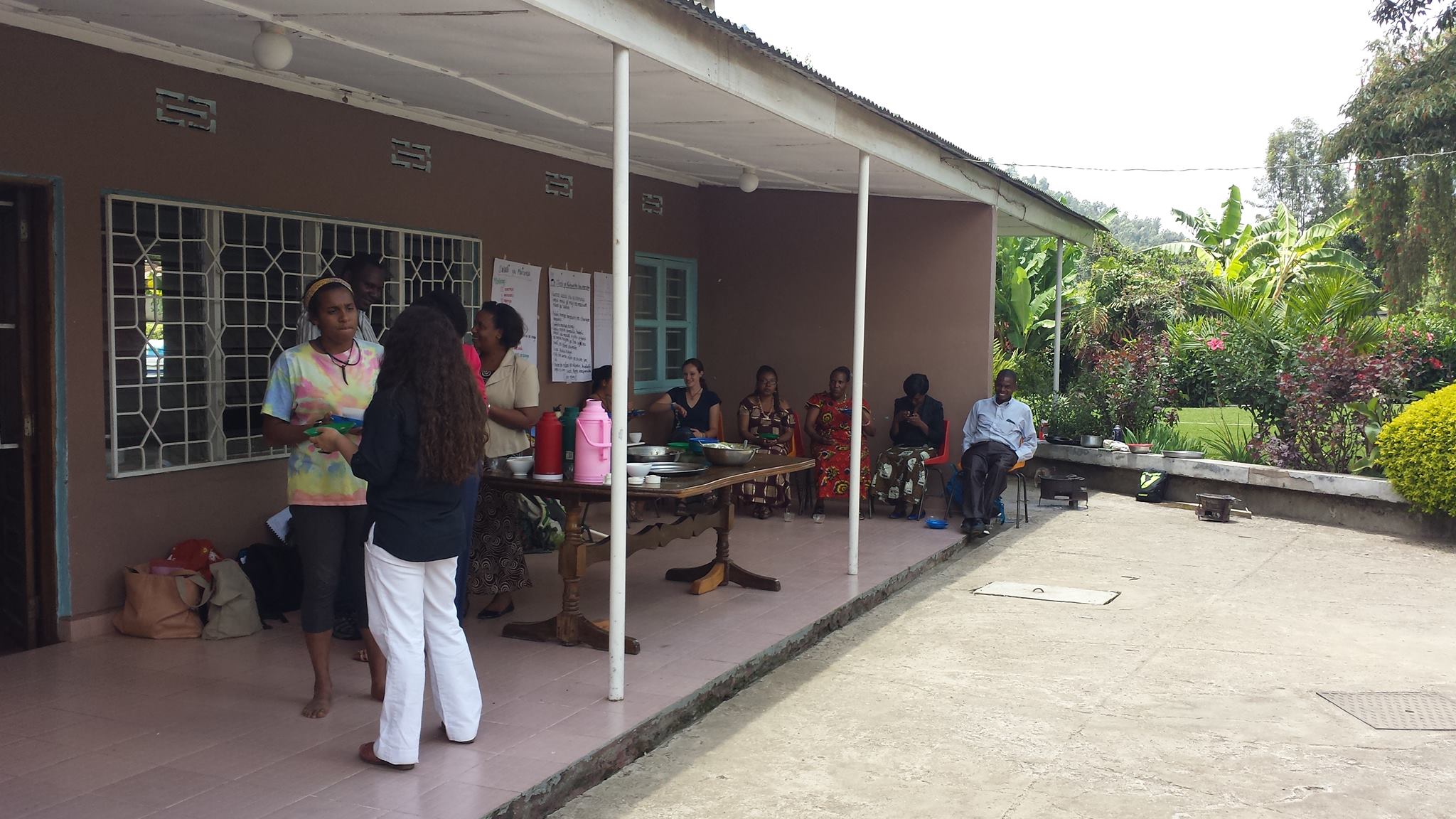
The program’s host communities in Bangata and Ngare Sero provide a foundation for the program’s success. In Arusha, students spend three weeks living with a family in the peri-urban community of Bangata. This village, about 8 km from Arusha town, is high on the slopes (1500 m) of Mt. Meru. Accommodation is varied between "modern" houses with electricity and wattle and daub homes. The families range from two-parent professional households (veterinarians, teachers, doctors) to those headed by single mother subsistent farmers.
Another homestay takes place in one of two Maasai villages: Ngare Sero, which lies at the base of the Maasai sacred mountain, Ol Donyo Lengai; or Loborsoit, which is about 60 kilometers from Arusha and east of Tarangire National Park. During this one-week homestay, you will be placed in pairs in a boma (extended family compound) where you will live in in different huts.
Other accommodations during the program include hostels, private homes, small hotels, and 33 nights of camping.
Passport
US Citizens
If you do not have a passport, it is important that you apply for one as soon as possible to ensure you receive it before the program begins. US citizens can find more information about how to apply for a passport on the US Department of State’s website.
Students with a valid passport should check the expiration date. Passports must be valid for at least 6 months AFTER the anticipated return to the US from studying abroad. If your passport is not valid for at least 6 months after your anticipated date of return to the US, you must renew your passport before applying for a visa or leaving the United States.US citizens can find more information about how to renew a passport on the US Department of State’s website.
Travel Arrangements
Students will work with their program provider to make travel arrangements to their program site. The cost of travel is not included in the course fee. UI Study Abroad will not arrange a group flight to your study abroad destination.
Do not purchase plane tickets until you have received instructions on how to do so from your program provider.
Local Transportation
Within your host city and around the country, students will utilize public transportation such as buses and trains. Excursions and general travel require a lot of walking, so bring some comfortable shoes!
Eligibility
This program is open to UI students who fulfill the following requirements:
- Minimum 2.5 cumulative GPA: Students must have at minimum a 2.5 cumulative GPA to participate in this program.
- Good academic and disciplinary standing: Students must be in good academic and disciplinary standing at the University of Iowa. Academic and disciplinary history will also be considered when determining whether a student is prepared to represent the University of Iowa as part of this program. Students who, even after being accepted into a program, are put on either academic and/or disciplinary probation for any period of time overlapping with the study abroad program dates are ineligible to study abroad. In these cases, students must forfeit their acceptance, will not be allowed to study abroad, and are wholly responsible for any and all financial expenses incurred.
Costs
Costs charged to the U-Bill
- Application fee (charged at the time of application, before financial aid/scholarships disburse)
- Course Fee- Includes program course fee, tuition, housing, meals, pre-departure advising, airport pick-up for those on the group flight, orientation, and program-organized field trip and excursions. (charged shortly before departure)
- University of Iowa Study Abroad Administrative Fee (charged shortly before departure)
- The mandatory Iowa Regents CISI Health Insurance (charged shortly before departure)
Out-of-pocket costs (not charged to U-Bill)
- Round trip airfare (paid by student directly to travel agent or airline- approx. 6-8 weeks prior to departure, before financial aid/scholarships disburse)
- Passport (paid by student prior to departure, before financial aid/scholarships disburse)
- Consular and visa fees (paid by student prior to departure, before financial aid/scholarships disburse)
- Textbooks, copyright permission fees, course packets, and other course-related materials (paid upoon arrival to your host country)
- Medical exam/immunizations (paid by student as needed prior to departure, before financial aid/scholarships disburse)
- Personal expenses and personal travel (paid by student as needed while abroad)
- Rental or purchase of required cell phone- does not include usage fees (paid as needed while abroad)
Cost Sheet
 SIT Tanzania Wildlife Conservation and Political Ecology - Spring 2025
SIT Tanzania Wildlife Conservation and Political Ecology - Spring 2025
Scholarships & Financial Aid
Most financial aid (scholarships, grants, and loans) is applicable to study abroad programs. Please check the Study Abroad website for information on financial aid and how it may be applied to studying abroad. You are also encouraged to speak with someone at the Office of Student Financial Aid to explore financial aid options. Scholarship opportunities exist for study abroad participants. Please explore Study Abroad’s websites for UI Study Abroad Scholarship Opportunities.
SIT offers scholarships and grants that can be found on SIT's Scholarships & Grants web page.
SIT has a matching scholarship for Pell Grant Recipients. More information can be found on SIT Pell Grant Match Award web page.
How to Apply
- Before initiating an application with SIT, students must complete a Discover Study Abroad session at the University of Iowa.
- After completing the Discover Abroad session, students will receive an email with their study abroad advisor assignment.
- Once assigned, students must meet with their study abroad advisor to receive program application instructions.
Students will need to complete a University of Iowa Study Abroad application and a SIT Program Online Application. Information on these applications will come from the study abroad advisor. Final program admissions decision is made by SIT.
Application Deadline
Applications are due on February 24 for Fall.
Applications are due on September 24 for Spring.
Health & Safety Planning
Students are encouraged to review the following:
Iowa Regents CISI Health Insurance Information
Health preparation Guide for International Travel
This document is intended to help you plan for your medical needs abroad.
Please DO NOT turn this form in to UI Study Abroad.
Visa
U.S. Citizens will need a student visa to study abroad for a semester.
SIT provides Pre-Departure Documents to all program participants. One document is entitled Flight, Passport, & Visa Information. It is essential to read this document and understand what is required to obtain any necessary student visa and/or documents to participate in the program. Ultimately, it is your responsibility to secure any student visa or required documents to participate in the program.
Orientation
In order to prepare for your time abroad, you are required by the University of Iowa to complete two orientations. These may be in addition to orientations provided by your on-site provider. See below for more information.
Online Education Abroad Pre-Departure Orientation
You are required to complete the International Programs ICON course "Education Abroad Pre-Departure Orientation" prior to departure. This orientation is mandatory for all students going abroad under the auspices of the University of Iowa. It covers many practical matters about living overseas, such as health and safety, communication, money, goals, and much more. You will be enrolled in this course by International Programs and an email will be sent to you once enrolled. If you have any questions, you can email safety-abroad@uiowa.edu
Program-Specific Orientation
This orientation will be facilitated by a study abroad advisor and will cover content specific to the University of Iowa including but not limited to, billing, insurance, the Credit Approval Form (CAF), and transcripts. It could be conducted in a group setting or one-on-one depending on your type of planned activity abroad. Your study abroad advisor will send you more information about this mandatory in-person session.
SIT Pre-departure Resources
SIT will provide you with a variety of pre-departure resources to prepare you for your study abroad experience. These will include
- Flight, Passport & Visa Information
- Country Overview & Packing Guidelines
- Health Guidelines & Requirements
- Mental Health, Counseling & Wellness Tips
- Safety, Security & Health
- Recommended Readings & Resources
- SIT Study Abroad Student Handbook
